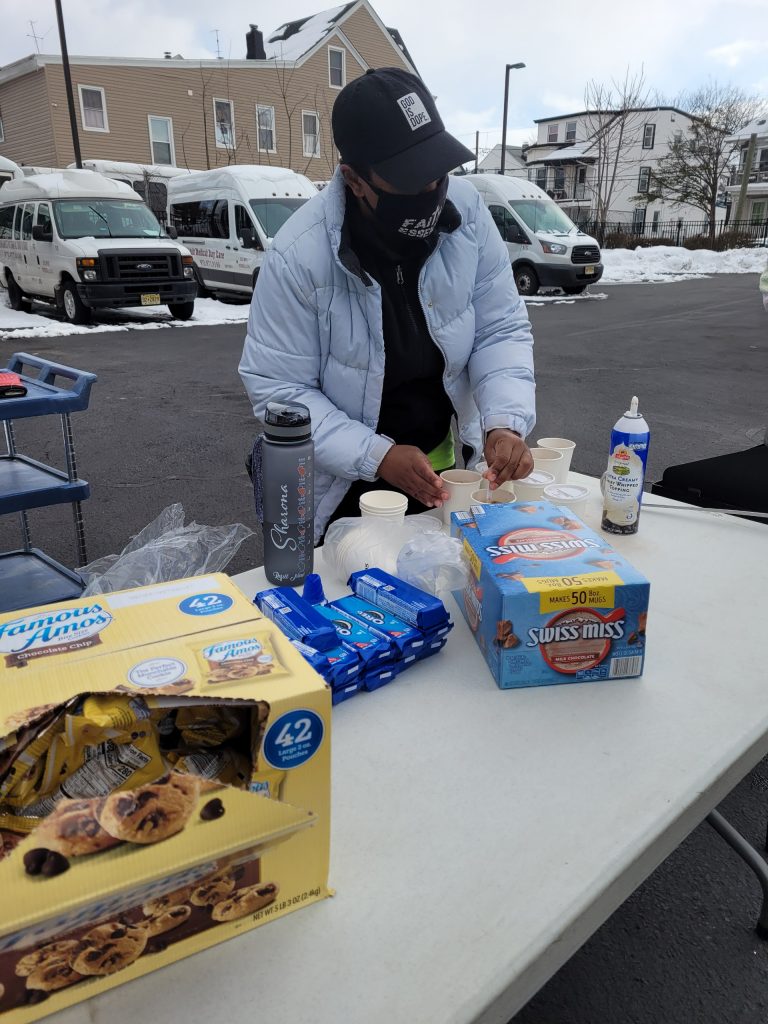Talena Queen, English Teacher at Eastside High School and Calvary Member, Featured for Her Love First, then School Approach
Talena Lachelle Queen focuses on creating an atmosphere of love in her English writing class at Eastside High School Academy of Culinary Arts, Hospitality and Tourism in Paterson.
The teacher and poet says love looks like understanding, kindness, and support in the classroom, especially as her students returned to full-day, in-person instruction this academic year.
By establishing a welcoming environment, students feel comfortable “to confide in me and want to get higher grades because they know they are valuable,” said Queen, a Paterson native who attended a local performing arts high school.
“I got to see dancers have recitals, actors have plays, musicians have shows, and artists have exhibits,” Queen said. “The writers did not have that kind of public showcase of their talent like the other disciplines.”
So when in 2018 she was named the city’s first poet laureate by Mayor Andre Sayegh, she started the first annual Paterson Poetry Festival. The festival is intended to serve and support young emerging poets, she said.
Poetry vibrates throughout Paterson, the hometown of poet Allen Ginsberg and the setting of Williams Carlos Williams’ epic poem named after the city. The city was even at the center of the 2016 movie with its namesake, which followed the life of a fictional bus driver and poet named Paterson.
While the city is brimming with arts and culture , incidents of gun violence and homicides are also a reality. There was a record number of homicides in the city last year and the year before.
The educator didn’t have a straight path to teaching. She started out working in broadcast journalism until she took on her first teaching role in 1998 to run a grant-funded videography class at Passaic County Community College. After that, she ran a preschool and daycare in Seattle, earned her teaching certificate, returned to her hometown, and began teaching at Paterson Public Schools in 2016.
Queen shared with Chalkbeat how she helps her students heal from the last two years, why she loves teaching “science of writing,” and the advice she follows to this day.
This interview has been lightly edited for length and clarity.
Was there a moment when you decided to become a teacher?
I decided I wanted to be a teacher in kindergarten, but I forgot about that dream while pursuing a career as a writer and journalist. I got back to my dream in time.
How do you bring your poetry background into your classroom?
I bring my poetry background into the whole district. Our superintendent has been supportive in a variety of ways. I host a poetry contest open to grades 3-12. The district is the primary contest source, though it’s open to all students. I host workshops for free. I visit campsites and afterschool programs. It is true that my favorite way is right in my own classroom. I tell the scholars to “make clay.” When they make clay, I can help them to mold their creations. A great thing happens: a scholar will “trust their pen and just write,” they’ll use a style that they think they’ve invented because they haven’t had intentional exposure to poetry, then I show them published poems in the style of their natural inclinations. I tell them the name of what they’ve made. It is incredibly empowering.

